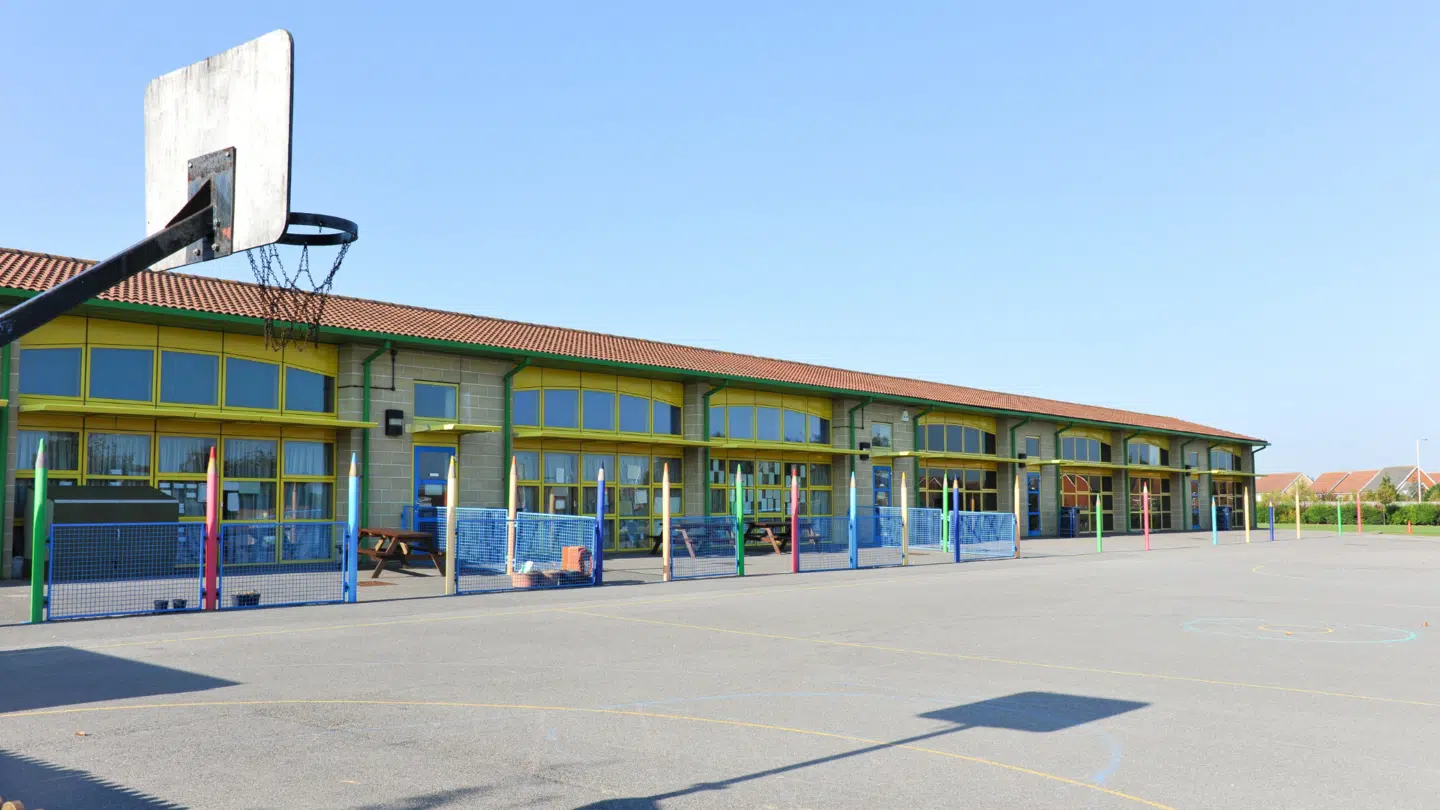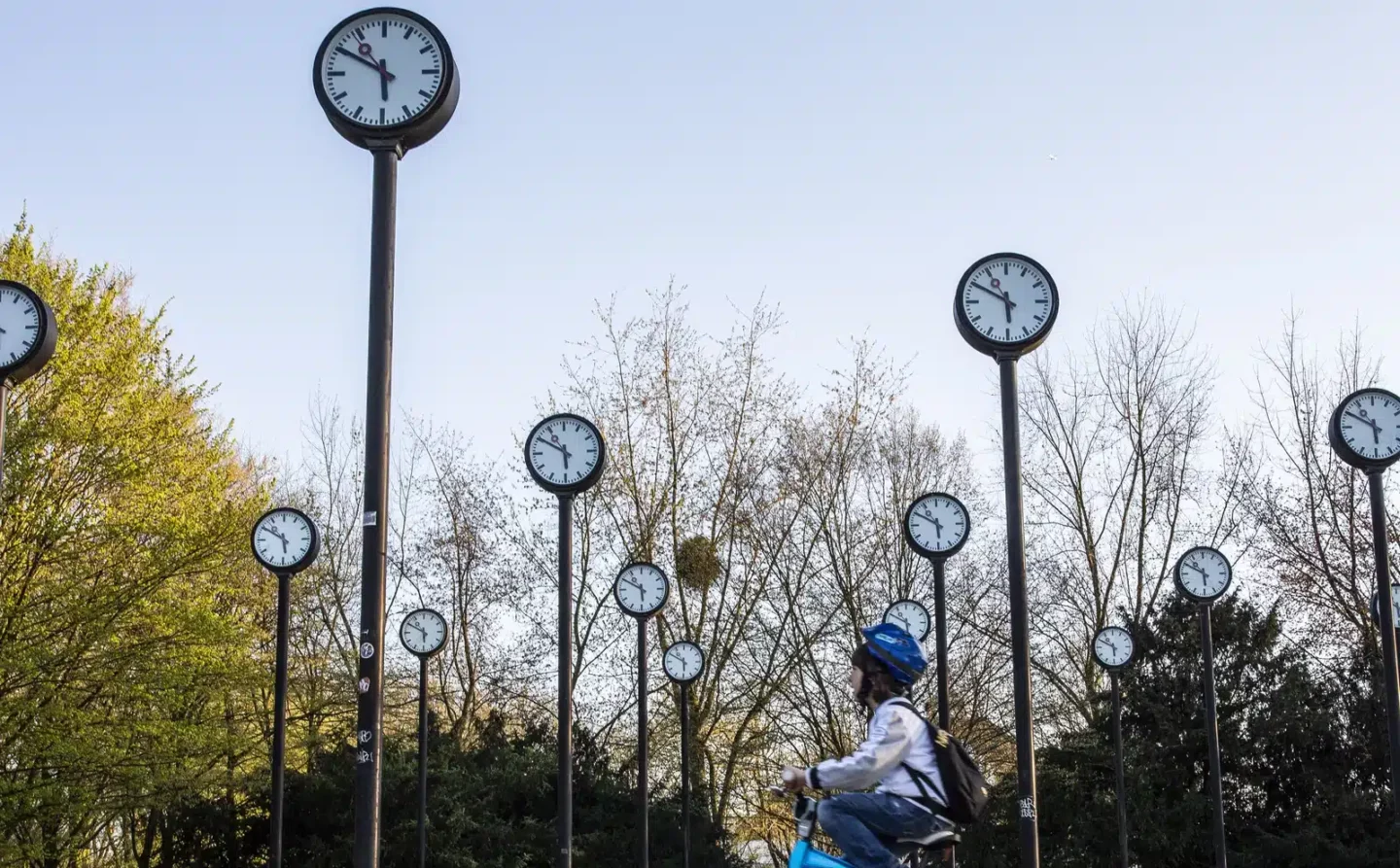By Ben Newmark
Part 1 – Is Workload A Real Issue For Teaching?
As a twenty-year veteran, I’m defensive of schools and the teachers in them.
Teaching is hard and its challenges are poorly understood by politicians who often seem more motivated by what looks good over what will work and so endlessly recycle the same policies, regardless of how many times they’ve failed.
In the latest iteration of this tired cycle, Keir Starmer’s Labour opposition (and likely next government) has proposed that failing schools in disadvantaged areas be “turned round” by deploying effective teachers into them – a strategy that at best throws shade at those already there and at worst throws them under the bus.
This is infuriating – you don’t have to have been teaching that long to remember the farcical National Teaching Service, which aimed to do the same thing and folded quietly in December 2016, after only 14 people accepted roles.
There’s lots of other important stuff where teachers are ignored too.
In October 2022, 68% of teachers responding to Teacher Tapp said they were experiencing feelings of burnout, such as physical or emotional exhaustion, and 10% – a significant minority – said these feelings were so severe they needed help.
Earlier in the same year, Teacher Tapp asked teachers how often they felt constantly under strain: 49% said all or most of the time.
As concerning as this is, it isn’t surprising. Teaching is hugely demanding. A typical full-time teacher is expected to deliver 22 hours of instruction to large groups every week. These groups comprise of young people who are forced to be there and would often rather not do as they’re asked.
While the teacher is delivering a lesson, they must also ensure everyone is paying attention and respond if they are not. Once lessons are over, the teacher must assess and give feedback, then adapt their planning in response to what pupils’ work tells them about what has been learned.
Done properly, this – on its own – probably adds up to more than the thirty-eight hours considered full time work by most employers.
But there’s so much more. In addition to this core responsibility almost all teachers are expected to contribute to the curriculum, go to meetings, enter data, analyse it, write reports, plan for open days and attend parents’ evenings.
And more.
Teachers also run clubs, revision sessions on Saturdays, and during holidays, and organise (and attend) school trips and residential visits too.
This is a lot of work, and any enquiry into why workloads are so high needs to begin by looking at what and why teachers are doing what they’re doing when not teaching.
In many contexts just-about-managing is the realistic best to expect, and it doesn’t take much for all the plates to come crashing down; illness, changes to childcare, a change to personal circumstance, additional caring responsibilities. Any of these can push an apparently highly-functioning teacher over capacity overnight.
This – as SchoolSurveys and TeacherTapp data shows – should be something schools are mindful about.
Why Extra’ Asks Are So Damaging
Teachers hate “extra” tasks dictated by leaders because most have so little headroom. Every second counts and even the simple act of getting through an email inbox can use up significant time that teachers don’t have.
School Survey answers show that teachers find late-notice changes to plans or last-minute demands for a document, or data or some sort of presentation, to be particularly damaging. Such changes have knock-on effects that can run a train through a set of a teacher’s established work schedule and force them to neglect other important tasks or their private lives.
For example, a departmental review, scheduled with little notice, can eat time teachers were expecting to use for planning and assessment, causing worse teaching and the associated problems with that (plus still catching up on assessment afterwards).
Such late-notice events happen a lot: 54% of teachers report being asked to complete tasks without reasonable warning twice or more in their last half term, with only 25% saying it hadn’t happened at all.
This is on top of the many unexpected events that inevitably occur in schools filled with human beings who don’t have predictable lives.
And it’s got harder post Covid. The tightrope – hard to negotiate at the best of times – becomes more perilous when work conditions worsen. We have declining behaviour and attendance, plus falling pay and heavy workloads.
This, combined with more online working and associated greater flexibility in other professions, is having predictable results. Recruitment is dire in almost all phases and subjects. Retention is worse ever, and most schools have been affected by industrial action this year.
Given this, it’s astonishing more isn’t being done and that demands for fairer pay and significant reductions to workload have been met – if at all – grudgingly.
Perhaps most astonishing is why public support isn’t overwhelming? It’s so obvious we’re struggling – so why aren’t we being heard? Why instead of apparently obvious solutions – like pay us more and reduce our workload – are we getting the return of zombie ideas we’ve tried and buried before?
Part of the problem is that teachers know better what it’s like to do the job than non-teachers. BUT this also limits our perspective in other ways.
It’s easy to look at Teacher Tapp data and conclude it means teaching is uniquely difficult. But it only tells us what teachers think about their jobs.
To make accurate comparisons, data about other professions must be examined too.
The education system doesn’t do this enough, and it limits our effectiveness in communicating with those we need support from. In failing to pay attention to the challenges faced by those in other industries we can be made to appear naïve, unrealistic and unreasonable. We may also miss opportunities to make significant improvements ourselves.
So here goes…
Part 2 – How does teaching compare to other jobs?
A Royal College of Nursing report found that even before the pandemic 73% of nursing staff said the staffing levels on their last shift weren’t sufficient to meet the need of patients safely. 7% said this compromised patient care.
The report also showed that only 56% of new nurses in 2021 were educated and trained in the UK and the number of new entrants is dropping, as it is in teaching.
Recruitment and retention are very worrying in social work too.
In 2022, the number of children’s social workers fell for the first time since data collection began in 2017, despite rising numbers of children needing support. Like teaching, vacancies are at a record high with workload and pay frequently cited as explanations.
Teaching is therefore far from the only job needing help finding and retaining staff. In this, we are not unique.
But there are important ways that we are. Like all meaningful professions, we face challenges that others don’t.
Why teaching really is different…
Teaching – like nursing and social work – is what sociologists define as an “on-stage” profession. This means a cornerstone of the job is facing people and managing their emotions, known as Emotional Labour. This, the literature says, is exhausting.
But the kicker here is that most “on-stage” jobs can only really be done on-stage. Once the actors exit the stage they are done. While there may be literature to read or training to do, you can’t really nurse at home.
Teachers occupy a weird space of being expected to do a lot of off-stage stuff, which also affects the quality of their on-stage work. If a teacher can’t plan their lesson thoroughly or review assessment outside of lesson time, then their lessons – the on-stage work – are worse and less satisfying.
This can be further complicated by a lack of autonomy. Few teachers have freedom to plan, teach and assess purely in the way they think best. Most schools have departmental and whole-school policies which dictate practice to a greater or lesser degree.
Inherently this is not a bad thing. When direction is strong and helpful, teachers appreciated it and benefits are felt by children. But there are risks.
Education is an unquiet graveyard of bad ideas; VAK learning styles; starters; plenaries; progress every twenty minutes; numeracy and literacy in every lesson – there’s a whole blog post in the ideas that have been imposed on teachers from above which later turned out to be unhelpful, at best.
Unhelpful direction has a double-barrelled effect on teacher workload. Firstly, there’s the work involved in following the direction itself – e.g. inputting data in a silly format every half term for whole school tracking. And, secondly there’s the work that must be done to mitigate the adverse effects of the poor direction.
For example, an unhelpful prescribed assessment system means teachers will be forced to do those tests and run their own assessments, so their on-stage work isn’t negatively impacted.
All this makes for lots of work hours and intensive emotional labour. Few other professions are comparable, and this isn’t well understood by non-teachers or even teachers, in an organised and explainable way. It’s also easily forgotten by those who’ve moved into leadership roles from full timetables, which means they often aren’t as protective of the time teachers need to do their core teaching work.
But what about holidays? Don’t they compensate for this challenge? For teachers, 13 weeks of holiday are an indisputable perk.
Those in other roles can be understandably envious and the argument that long hours even out over the year when holidays are factored in does deserve consideration.
Unfortunately many humans do not work well on a feast-famine cycle. If a teacher is exhausted at the end of a week, then they are exhausted, and telling them to hang on for another two weeks doesn’t address the issue, in the same way that someone won’t stop being thirsty because you gave them a gallon of water to drink 48 hours ago.
We need more balance.
Part 3 – What can we do?
If we want to resolve workload, there are some things that schools themselves can do – and it starts with understanding the work teachers in any school are really doing. (If you are interested in how School Surveys can help with this, go here)
TeacherTapp’s School Survey data suggests it’s likely many schools will find useful things to reconsider.
For example:
- 62% teachers feel they get too many emails
- 33% say they have three or more after-school meetings each week
- 54% say they think half or more meetings they attend are a waste of time
Given this, surely things could be cut out in almost every school? Does every meeting need to happen? Do all teachers really need to stay until 7pm for Y8 parents evening? Does data need to be entered every half term? Are there good reasons for why teachers are expected to mark as much and is as much depth as they are expected to? Must displays really be updated every half term?!
Leaders might also examine how non-contact time is used. When it was first introduced, these periods were called Planning, Preparation and Assessment time for a reason. It was supposed to be used by teachers to support what they did directly in lessons. It wasn’t supposed to be used for training, or line management, or to write documents for Ofsted or other accountability systems.
Regrettably, there’s been a drift towards seeing it as time to be used for other tasks, often not directly linked to a teacher’s classes, with the effect of even more off-stage work at the expense of on-stage work.
But let’s imagine that teachers were directed not to work on anything but their lessons during PPA time. That will go nowhere if not accompanied by other changes. It would mean working even longer after 3.30pm to finish the other stuff.
Instead, schools must reassess the amount of work it’s reasonable to expect from teachers and revise school priorities in response. For almost all schools this probably means doing less, sometimes much less.
And less change too. For leaders this may well feel risky because it means going against long-established modes of practice that incentivise rapid change, leading to the sense that inactivity places them behind other schools
Leaders feeling a crisis of confidence about this should consider three things:
Firstly, the evidence of recent years shows that there is slight advantage in being at the vanguard of education reform. More often than not, what everyone is doing right now is being cited as a driver of pointless and even damaging practice within a couple of years.
When leaders see a new idea it’s probably best to note and observe it for a while without making any changes to their school at all. Let the benefits, drawbacks and lethal mutations emerge somewhere else before deciding whether the idea is worth committing to.
Second, as things stand, recruitment and retention is probably the single most significant problem faced by the sector right now and the benefits of a fully staffed school outweigh the far less certain benefits claimed by buzzy new initiatives, especially if implementing them is sure to drive up workload.
Finally, there are vanishingly few teachers who don’t want to do their best for children. Limiting direction might free them up to do brilliant things that won’t appear on any strategic plan but have real benefits to real children.
Schools should aim for a limited and clearly defined core of work that can be completed in a reasonable amount of time and be as clear about what they don’t expect from their teachers as they are what they do. Getting good work done is more important than starting lots of half-baked things.
And finally, finally… When teachers are in the news about pay and conditions, and are faced with infuriating questions about long holidays, rather than becoming defensive, perhaps we’d be be better off explaining the reality of teaching.
It is a hard and intense job which requires essential preparation and while we are compensated with long holidays, we also need to limit the tasks and hours to ensure the on-stage work is of adequate quality.
After all, true appreciation of teaching requires acknowledging not just the on-stage performance, but the rehearsals, revisions, and reflections that come long after the bell rings
Ben Newmark is a practising history teacher and senior leader. He has been teaching for twenty years.
If you would like to know more about what workload is going on in your school, head to SchoolSurveys.com



